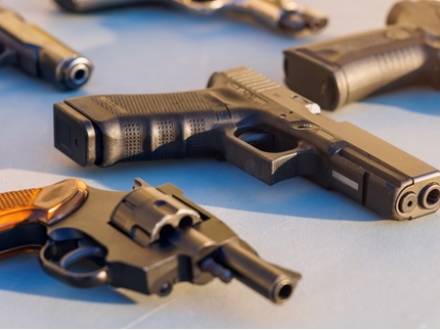When Does a Texas Gun Case Fall Under Federal Jurisdiction?
 Gun cases in Texas can be complicated, potentially involving federal and state authorities. Sometimes, a case can begin as a state charge and be escalated to federal jurisdiction.
Gun cases in Texas can be complicated, potentially involving federal and state authorities. Sometimes, a case can begin as a state charge and be escalated to federal jurisdiction.
If you have been accused of a state or federal gun crime, a San Antonio, TX federal gun crimes defense attorney can help you understand the laws that apply to your case and how you may be able to challenge the charges. First, consider the difference between state and federal charges and the types of cases that fall under both.
Difference Between Federal and State Jurisdiction
In the simplest terms, state jurisdiction covers gun crimes that violate Texas state laws, and federal jurisdiction applies when federal laws are violated. When the state has jurisdiction, the authorities involved are state or county prosecutors and local police, and they follow state law. Under federal jurisdiction, the Bureau of Alcohol, Tobacco, Firearms, and Explosives (ATF) or the FBI will typically handle the investigative work, and U.S. attorneys often prosecute.
Gun Crimes That May Under Texas State Jurisdiction
The types of cases that typically fall under state jurisdiction in Texas have penalties like fines, state imprisonment, and probation. For example, unlawful carrying of a weapon is a charge listed under Texas Penal Code, Chapter 46, and mandates that you cannot carry a handgun under certain circumstances, such as when you are intoxicated.
Possession of a firearm in a prohibited place is another state violation. It states that you cannot have a gun in airports, schools, and polling places. If you are arrested for possessing a firearm as a convicted felon, that would also likely be a state gun crime, although it can be a federal crime under certain conditions.
Gun Crimes That Fall Under Federal Jurisdiction
Federal gun crimes often carry harsher penalties and apply stricter standards for evidence of constitutional rights violations. Some common examples of gun-related charges that would fall under federal jurisdiction include:
-
Interstate sale or transfer of firearms: Selling guns across state lines without a federal firearms license is usually illegal, including in cases involving private sales.
-
Possessing a firearm as a prohibited person: Possessing a firearm as a convicted felon or as someone under a domestic violence protective order can also be a federal crime.
-
Possessing a restricted firearm: This can also be a state issue, but federal law is often much more strict about prohibiting restricted firearms, such as fully automatic weapons, for certain individuals.
Federal courts follow different rules from state courts, but facing charges in either always warrants hiring legal counsel.
Contact a San Antonio, TX Gun Crimes Attorney for a Consultation
Both state and federal gun crimes can have serious consequences. Whether you are facing one or both, the Texas federal criminal defense lawyer at the Law Offices of Sam H. Lock will fight for a favorable outcome and protect your rights throughout the process. Several factors can complicate these cases and make it more challenging to defend yourself. Call 210-226-0965 to schedule a consultation and find out what legal defense options are available to you.





